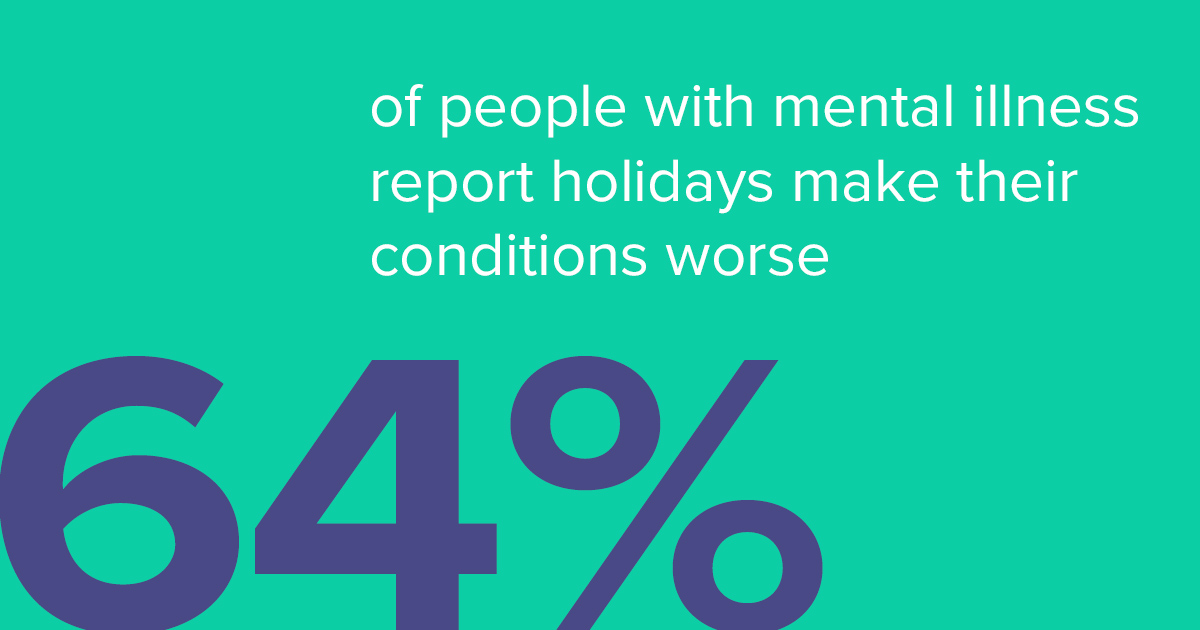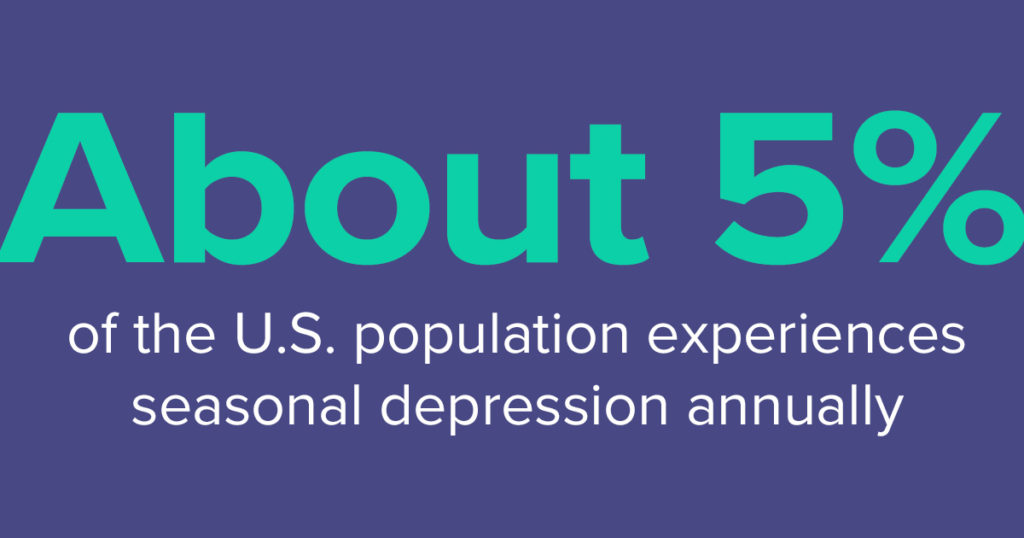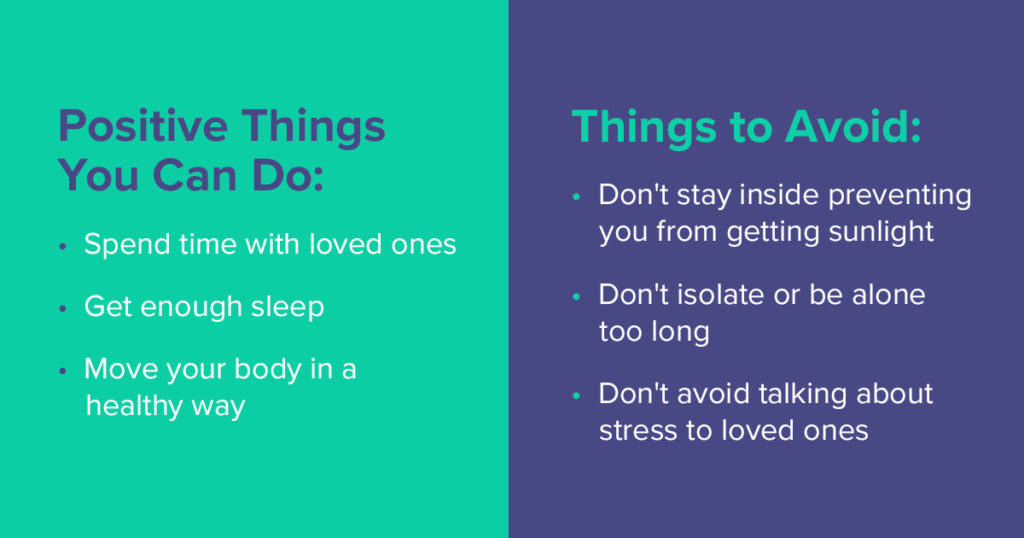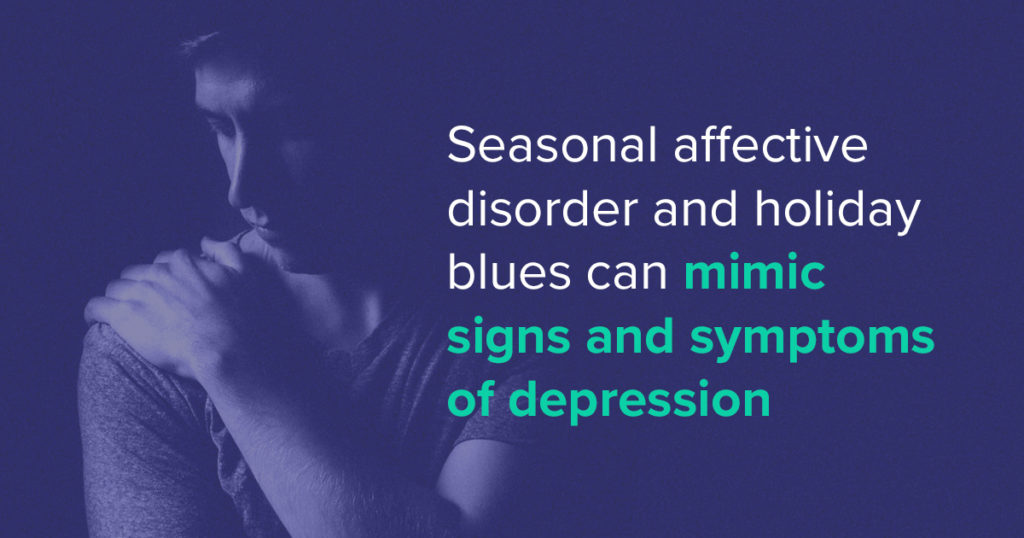Weathering the Holiday Blues

For 64 percent of people already dealing with mental health issues, the holiday season can make their conditions even worse. And while this is potentially a dark time for many, there are ways to cope. But first, we must understand the signs and symptoms of the most common seasonal triggers.
Holiday Blues
We can all relate to the increase in stress and anxiety that surface during the holiday season. There are added responsibilities, navigating complex family dynamics, and the return of sentimental memories that can trigger a sense of loss. Many people can feel pressure to have the holidays be perfect and joyful. Because of the added pressure, they develop unrealistic expectations which increases risk of disappointment. These stressful situations can ultimately lead to an escalation of symptoms, including:
- Loneliness
- Sadness
- Fatigue
- Tension/anxiety
- Sense of loss

Seasonal Affective Disorder
Also arising during the fall and winter months is Seasonal Affective Disorder—or, more fittingly, SAD. Unfortunately, millions of Americans suffer from SAD annually, and scientists still do not fully understand its cause. According to the National Institute of Mental Health, SAD is a form of depression that brings with it some very challenging symptoms, including:
- Sadness
- Oversleeping
- Overeating
- Weight gain
- Social withdrawal
And while these symptoms typically last a few months, they can reoccur every year and may lead to serious, long-term mental health conditions. Luckily, there are ways to minimize the impact when dealing with the holiday blues or SAD.

Positive Things to Do
- Spend time with loved ones
- Stick to a routine that includes time for having fun
- Get enough sleep
- Move your body in a healthy way
- Set reasonable expectations
Things to Avoid
- Don’t stay inside, preventing you from getting sunlight
- Don’t isolate or be alone too long
- Don’t avoid talking about stress to love ones
- Don’t deviate from your routine
- Don’t excessively use drugs or drink alcohol

When to Seek Help
If you feel like you could be suffering from the holiday blues or Seasonal Affective Disorder and need help managing your mental health, the professionals at aptihealth can get you on the fast track to feeling better at aptihealth.com/CDPHP. Talk to your doctor about the possibility of vitamin D deficiency or antidepressant medication.
To speak to a CDPHP representative about all the mental health care services available to you, contact the CDPHP Behavioral Health Access Center at 1 (888) 320-9584. If you are in a life-threatening situation, call the National Suicide Prevention Lifeline at 1-800-273-8255.
*Some employers who self-insure may not have this benefit. If you are unsure if your plan includes this benefit, please contact CDPHP member services.
 The Daily Dose
The Daily Dose
Comments are closed.